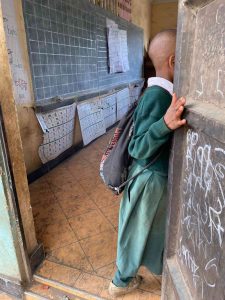Summer Time and Children
By Nadia Ramoutar, MMM Communications Coordinator
For many children in the Western World, having summer months off is an exciting time of freedom when they will enjoy fun activities, camps and even holidays overseas. It is a much welcomed break for children who worked hard all year at school and now can rest and enjoy their favourite activities, including video games, TVs, mobile phones and tablets. Parents can schedule time off from work and bring the school age children to different places.
For the children in many of our MMM school age projects in Africa and Brazil, taking time off from school is not the celebration it is in other parts of the world.
For one thing, many of the children in our programmes receive their main meal of the day in school, and sometimes it is the only meal of the day. It is hard for many of us, think how difficult learning must be for a child who has had no breakfast and will have no dinner. Many of the children walk long distances to get to school which means they are burning off calories that they did not consume.
The Faraja Centre in Singida, Tanzania run a school programme for vulnerable children. The children are entered into the programme through various types of referral. Some have HIV or are being raised by parents or grandparents with HIV. Some are children of chronically sick, terminally ill or deceased parents. The world is very harsh for these children.
The Principal of one of the schools, Juma J. Thomas is very grateful to the MMM’s Vulnerable Children Project because it helps children who might otherwise stop coming to school for a variety of reasons, including not being able to afford uniforms or fees, also many vulnerable children are forced into work at a very early age. Some of the teenagers look very small for their age and at 17 years of age, some look like they are still in primary or elementary school due to malnutrition.
“There is no failing here”, the headmaster says expressing how much he cares about the 1.063 children in the secondary school. Despite his devoted attitude, he admits that the conditions for success are not there for many children who face enormous issues around poverty at home. He also faces a severe lack of resources at the school. He is both the chemistry teacher and the Headmaster because there is a shortage of teachers. He also has a shortage of books. There are only nine computers in the school for all 1,063 students, teachers and staff.
Despite the hardships in the school, the children are learning there and most importantly they are fed. Our MMM Programme in the school gives the children promise for a better future to break the intergenerational chains of poverty.
